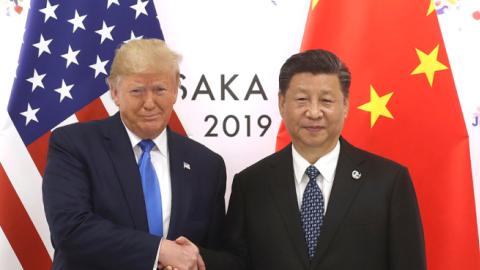The markets seem to think President Trump has a chance at reforming U.S. trade relations with China. At the Group of 20 summit in Osaka, Japan, this weekend, he brokered a truce with Beijing, avoiding the escalation of a trade war that would have threatened the global economy and perhaps undermined his re-election message of economic revival. Stocks rose on trade optimism. But there is mixed evidence that Mr. Trump has a winning strategy to convince the Chinese to adhere to global trade rules and to move to a more market-oriented economy.
Mr. Trump agreed to halt additional tariffs on Chinese goods indefinitely—though the 25% tariffs on half of Chinese imports will remain in place—and to allow Huawei Technologies to purchase some key U.S. components. Mr. Trump also stated that the U.S. will hold meetings to determine what to do about Huawei, but for now many of the limits on it and the Chinese technology firm ZTE will remain in place. These compromises came after Mr. Trump suspended the U.S.-led case in the World Trade Organization challenging systematic intellectual-property theft by Chinese actors.
The Chinese concessions in return are slim: more agricultural purchases, some opening for more foreign direct investment and control of joint ventures in China, and a return to the bargaining table. Mr. Trump seems to be banking on the visible economic effects as well as internal political impact of existing sanctions and the threat of more tariffs to wear down Chinese resistance.
Read the full article in the Wall Street Journal "here":https://www.wsj.com/articles/trump-needs-more-than-patience-with-china-…




















